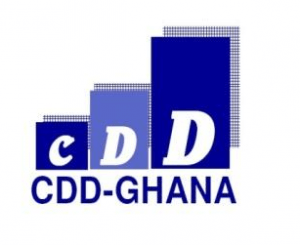MMDAs must engage local communities in project execution – CDD
 The Ghana Centre for Democratic Development (CDD-GH), a civil society organisation has reiterated the need for Metropolitan, Municipal and District Assemblies (MMDAs) to engage local communities, identify the needs of the people before executing development projects.
The Ghana Centre for Democratic Development (CDD-GH), a civil society organisation has reiterated the need for Metropolitan, Municipal and District Assemblies (MMDAs) to engage local communities, identify the needs of the people before executing development projects.
Mr Mohammed Awal, the Lead CDD-GH’s Evidence for Development Project (E4D) regretted that evidence showed that many physical infrastructures constructed by the MMDAs did not reflect the needs of the local communities, and had therefore become white elephants, left under the mercy of the weather.
The E4D project was implemented by CDD-GH between July 2019 and December 2021 in the Dormaa East and Bolga East Districts as well as Sagnarigu Municipality, with funding from the William and Flora Hewlett Foundation.
Among other objectives, the projects aimed at improving government policy capacity and motivation to use a variety of data and evidence to inform policy and decision making, programme design, implementation and evaluation, particularly at the sub-national and district levels.
Speaking at a multi-stakeholders and information sharing forum on the project held in Sunyani, Mr Awal noted that some of the projects which were beneficial to local communities were also not sited at appropriate places.
The forum was organised by the Hope Alive 360 Foundation, a non-governmental organisation and lead implementer of the E4D in the Dormaa East District and attended by the academia, civil society actors and assembly members.
Mr Awal indicated if the MMDAs actively engaged local communities in their planning and decision-making processes, the local people would also develop interest, enumerate their immediate development needs and support the assemblies to tackle those needs.
He said until that was done, the MMDAs would continue to pump huge resources into development projects that would not impact the lives of the people, saying “we don’t have enough resources, so we have to be efficient in resource utilization for the communities to derive the maximum benefits”.
Mr Awal also asked the MMDAs to generate a reliable data base, stressing that poor data impeded the development process and created institutional problems because without reliable data the MMDAs could not take concrete decisions that would have significant impact on the lives of the people.
Mr Amos Baffour-Mensah, the Executive Director, Hope Alive 360 Foundation, highlighted the need to strengthen monitoring and evaluation systems and practices to support evidence-informed decision-making at the district assembly levels.
By so doing, he added the decision-making processes of the Assemblies would truly reflect the needs of the local communities and impact their lives accordingly.
Source: GNA
